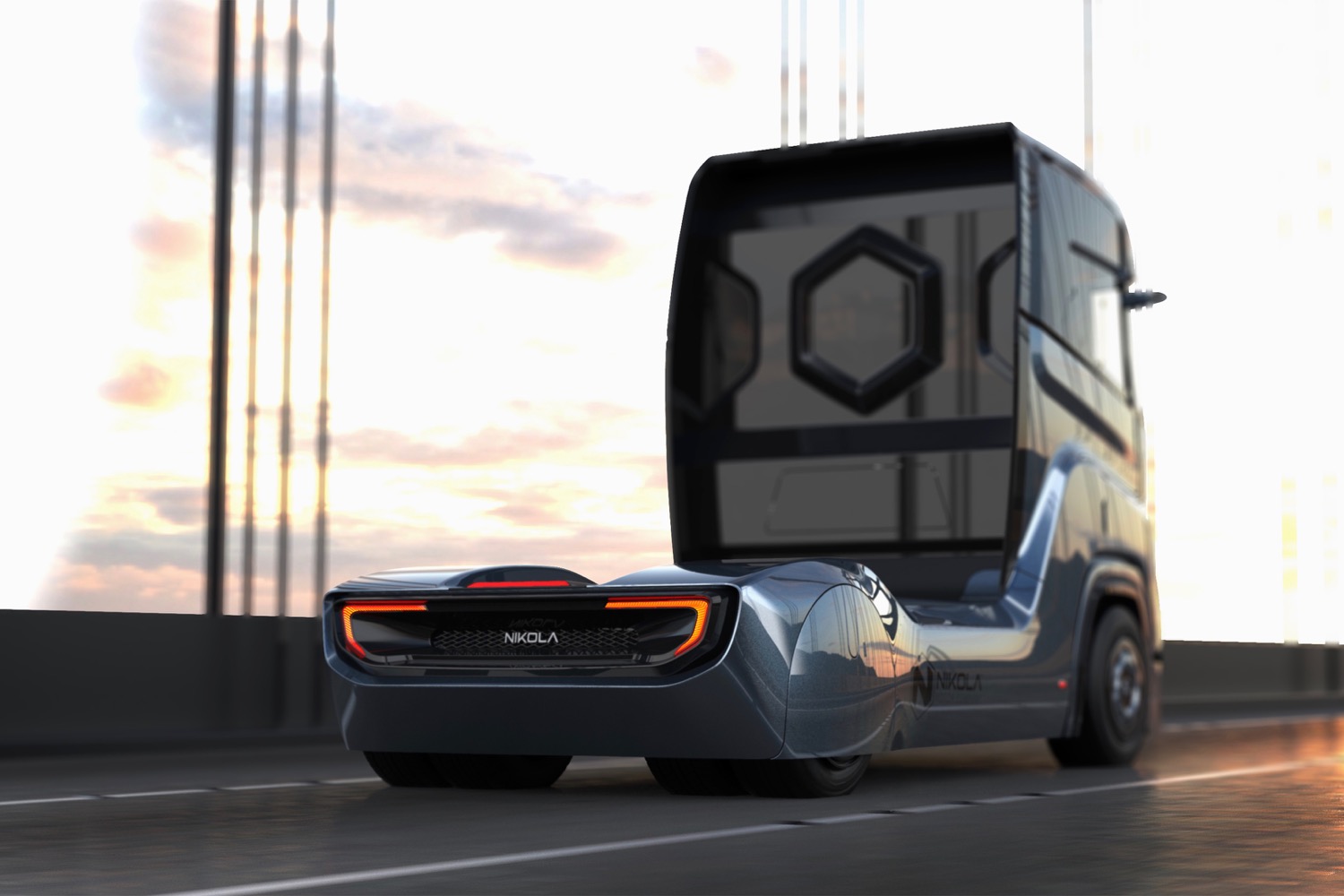Nikola Motor Company (the second company named after Nikola Tesla) believes future long-haul trucks should be powered by hydrogen fuel cells. The company hasn’t delivered a single truck yet, but it’s already unveiling a new design. While the original Nikola One and Nikola Two semi trucks (basically two variants of the same design) were aimed at the United States, the Nikola Tre was designed for Europe.
The Nikola Tre will be available in 500 horsepower to 1,000 hp versions and with a range of 500 kilometers to 1,200 km (310 to 746 miles), according to its maker. Nikola also said the truck was designed to meet size and length restrictions for Europe. The flat front and boxy overall appearance are common for European semi trucks, but rarely seen in the U.S. these days. Nikola also said the Tre will possess hardware that lays the foundation for autonomous driving.
A Nikola press release said the company plans to begin testing in Norway around 2020, and that Nikola is in the “preliminary planning stages” to choose a location for a European factory. Nikola hopes to start production of the Tre around 2022 or 2023, the same time it plans to begin production of trucks for the U.S.
Nikola said it is already working with Norwegian firm Nel Hydrogen to provide hydrogen fueling stations in the U.S., and will expand the effort to Europe. By 2028, Nikola said it plans to have 700 stations across the U.S. and Canada. The company said it plans to have its first European stations online by 2022, with a network covering “most of the European market” by 2030.
Zero-emission commercial vehicles are gaining popularity. In addition to Nikola, Toyota is testing fuel-cell semi trucks, albeit in shorter-haul service around the Ports of Los Angeles and Long Beach. Meanwhile, Tesla and several other companies are developing battery-powered trucks. Nikola has sued Tesla, claiming the design of the latter’s battery-powered semi truck is too similar to its own fuel-cell truck.
Nikola claims to have approximately $11 billion in reservations for its trucks, including an 800-unit order from Anheuser-Busch. But wooing potential buyers with big promises is easy. As other startups have found, vehicle production is expensive and complicated. Following through on those promises by building trucks and supporting infrastructure will be the real challenge.




